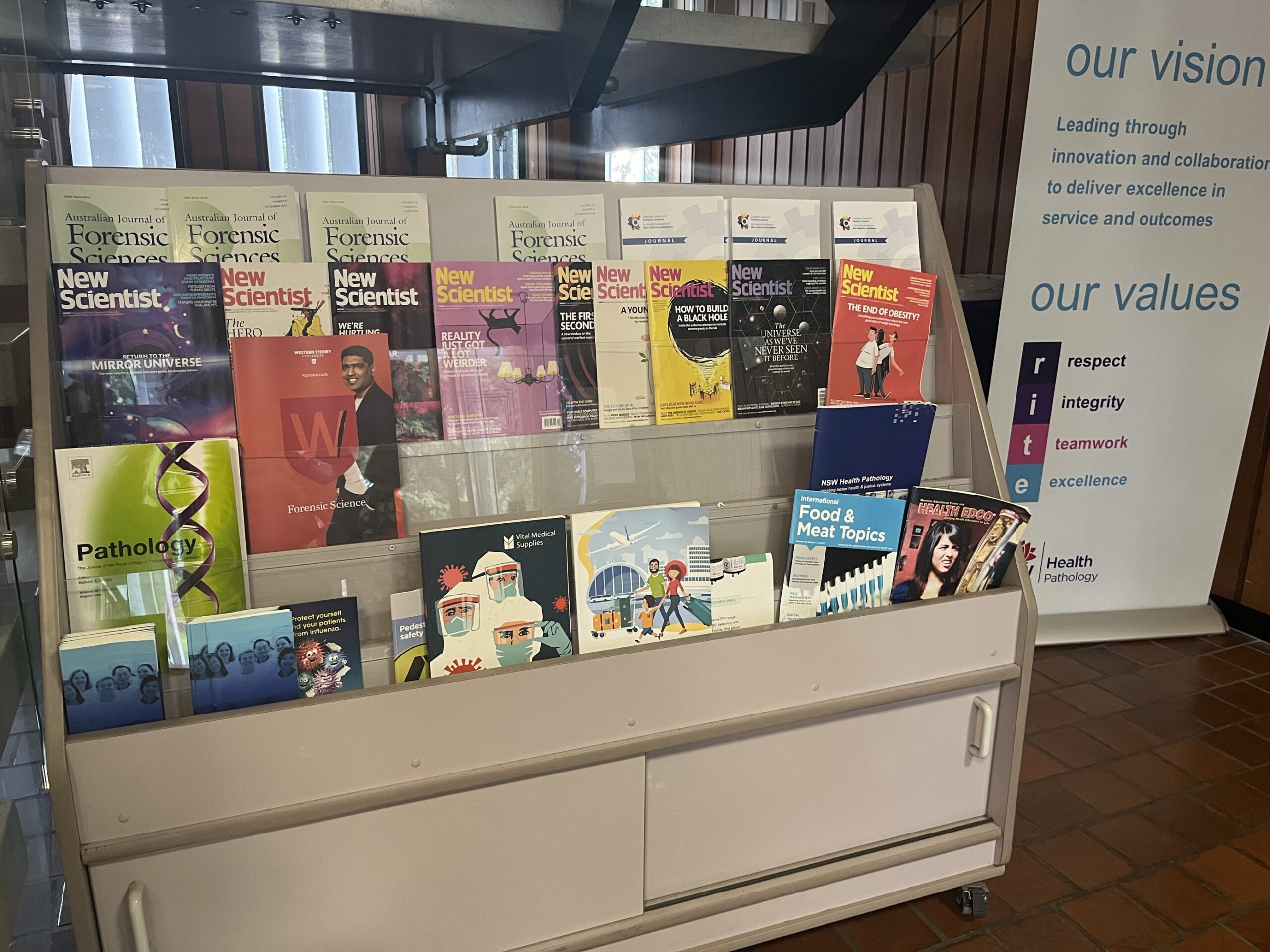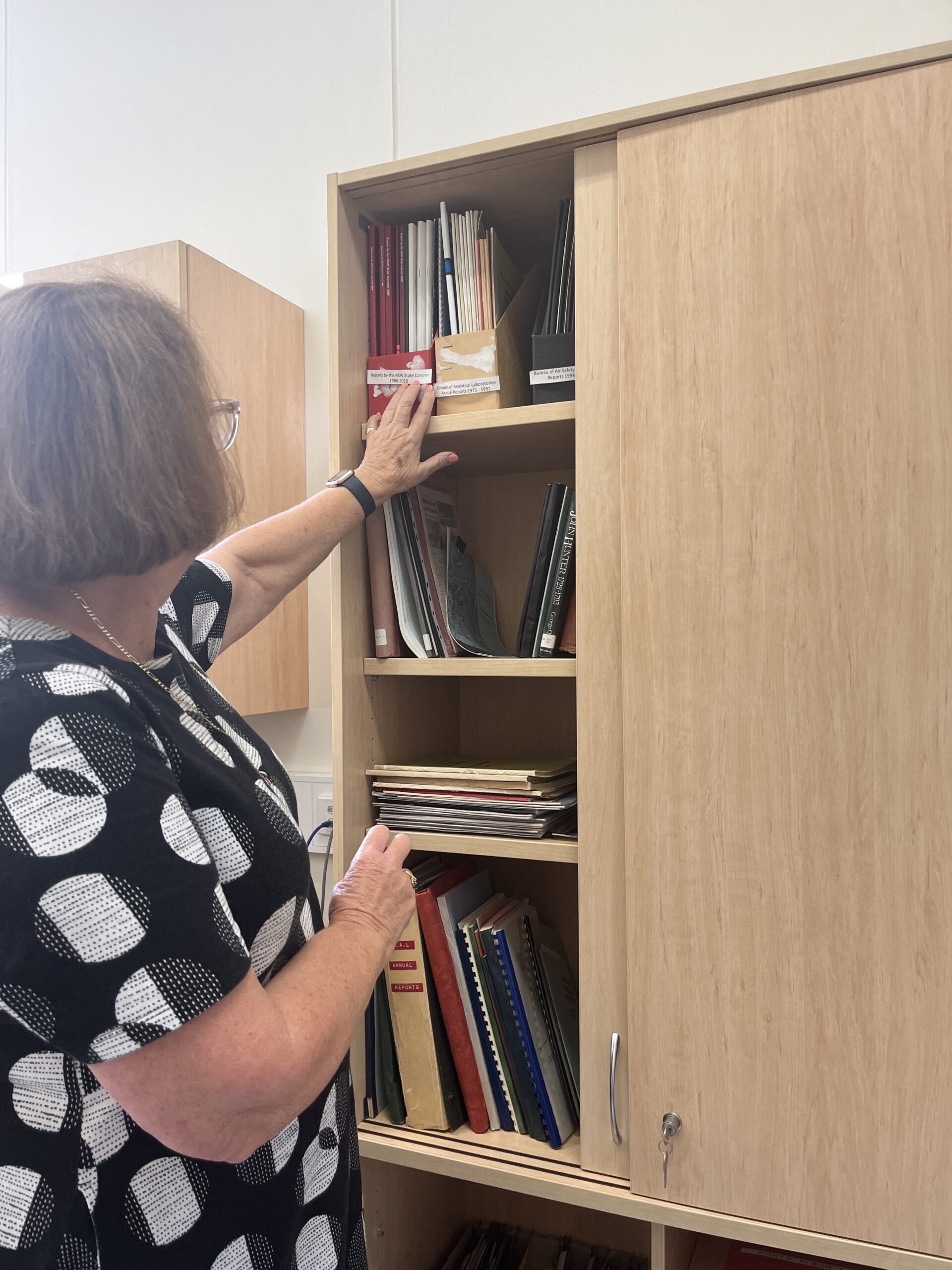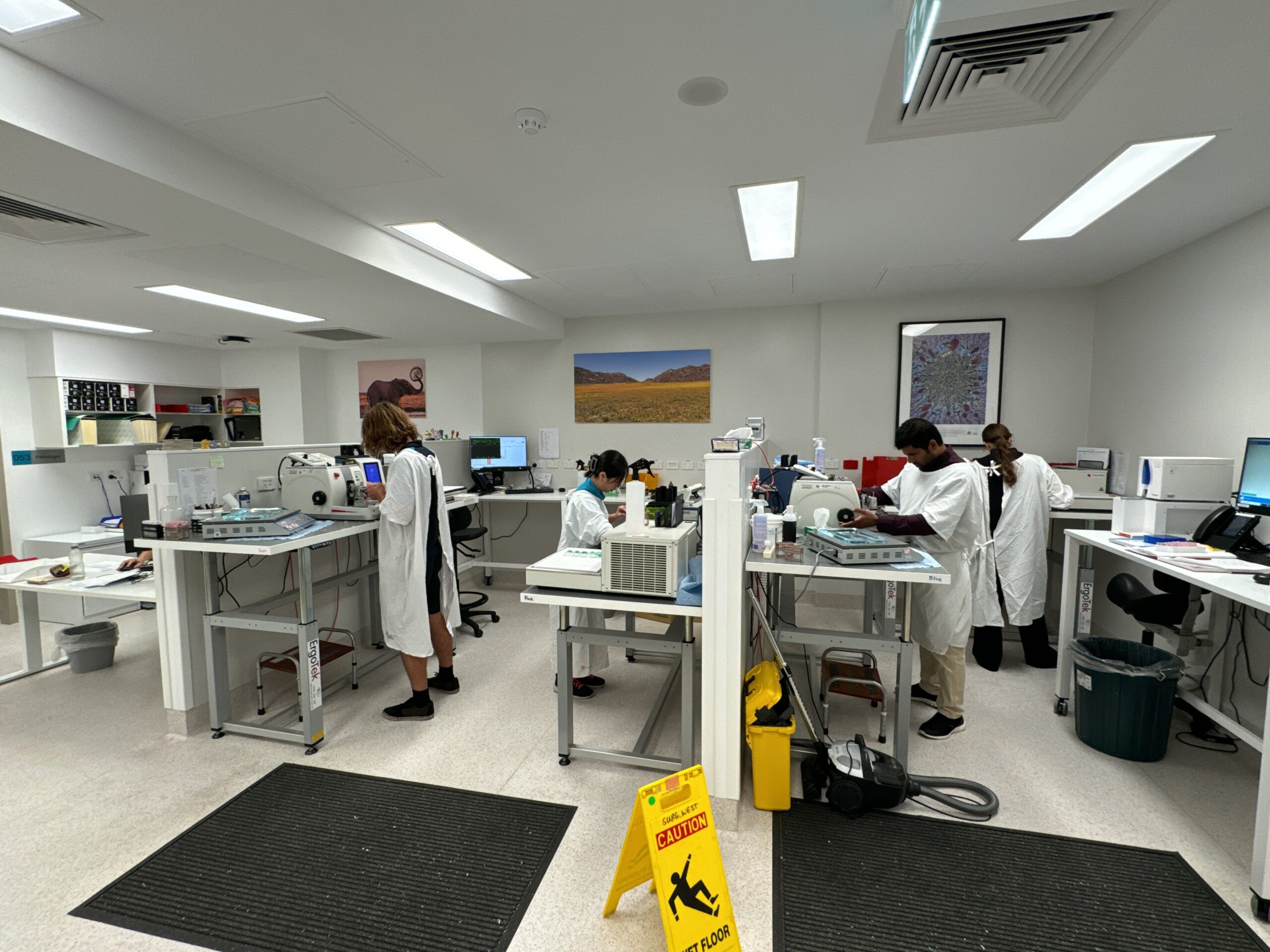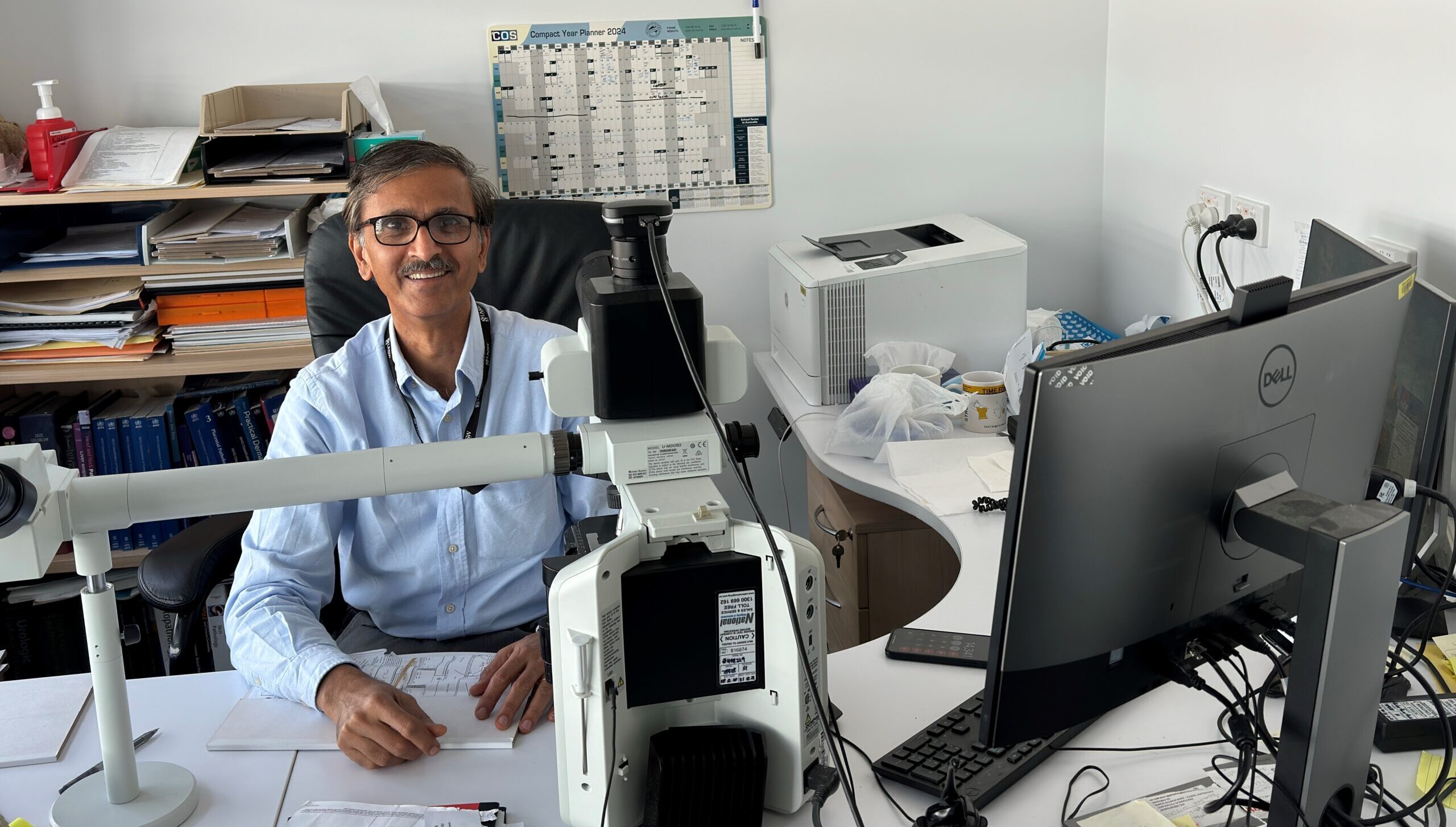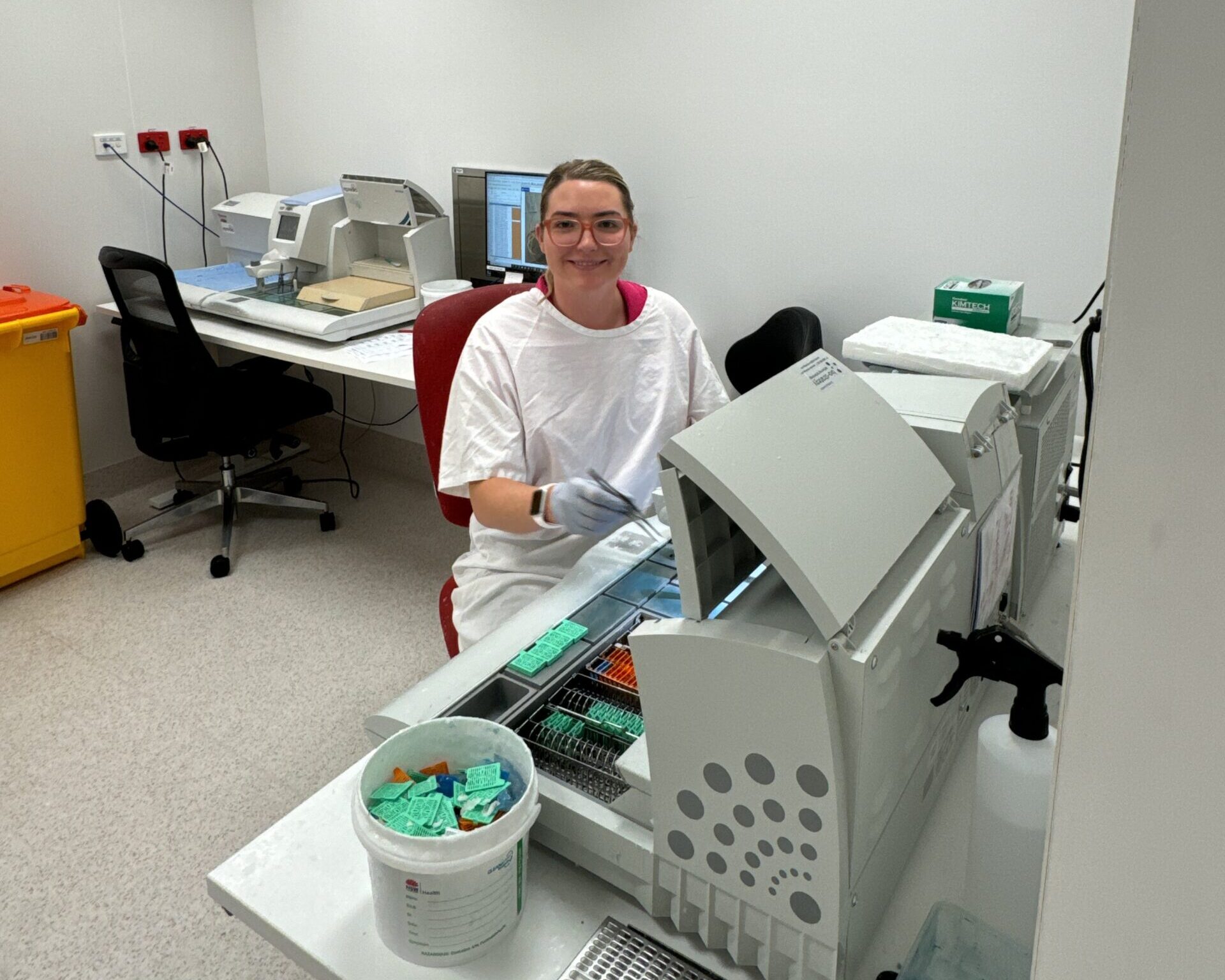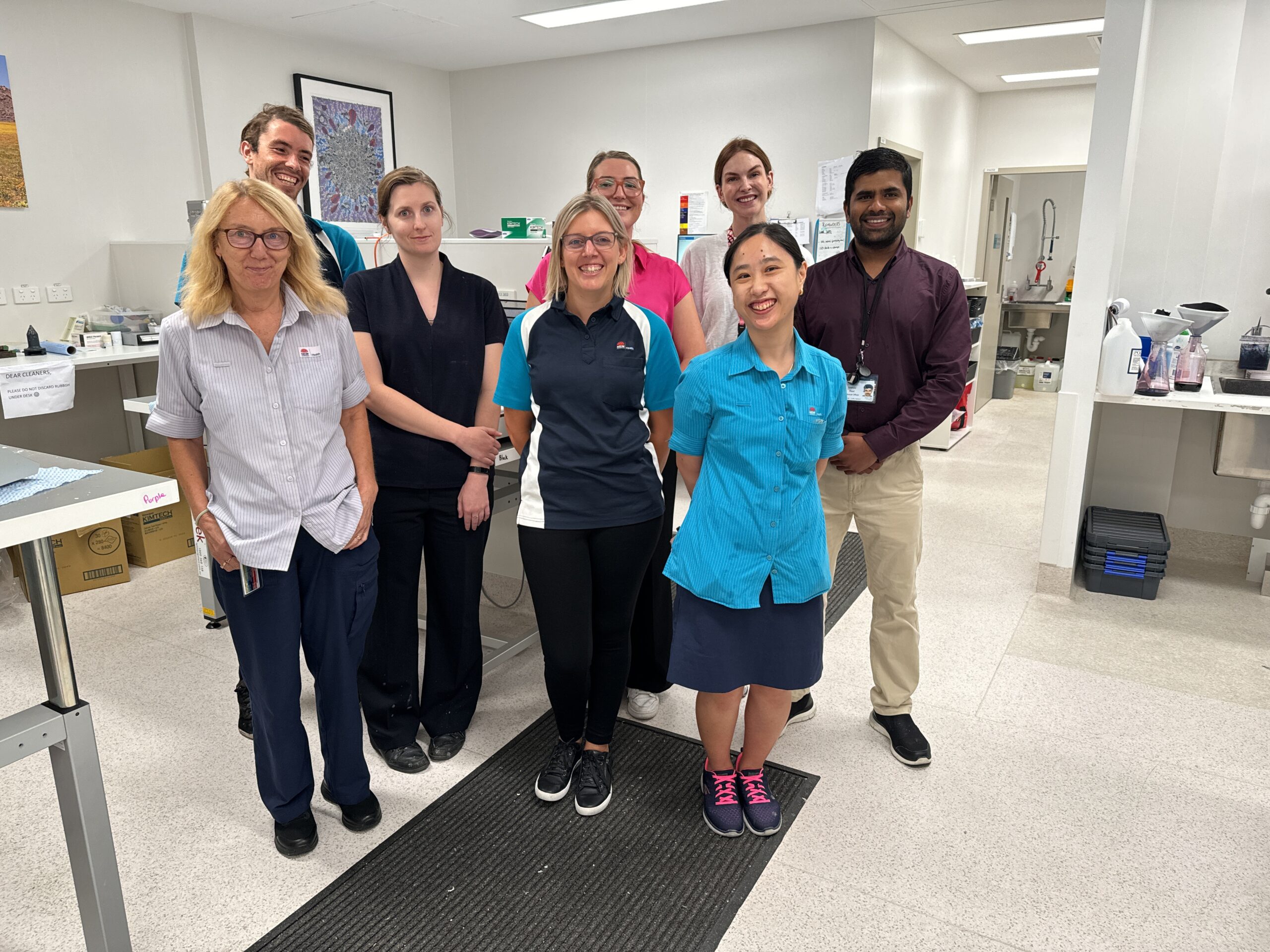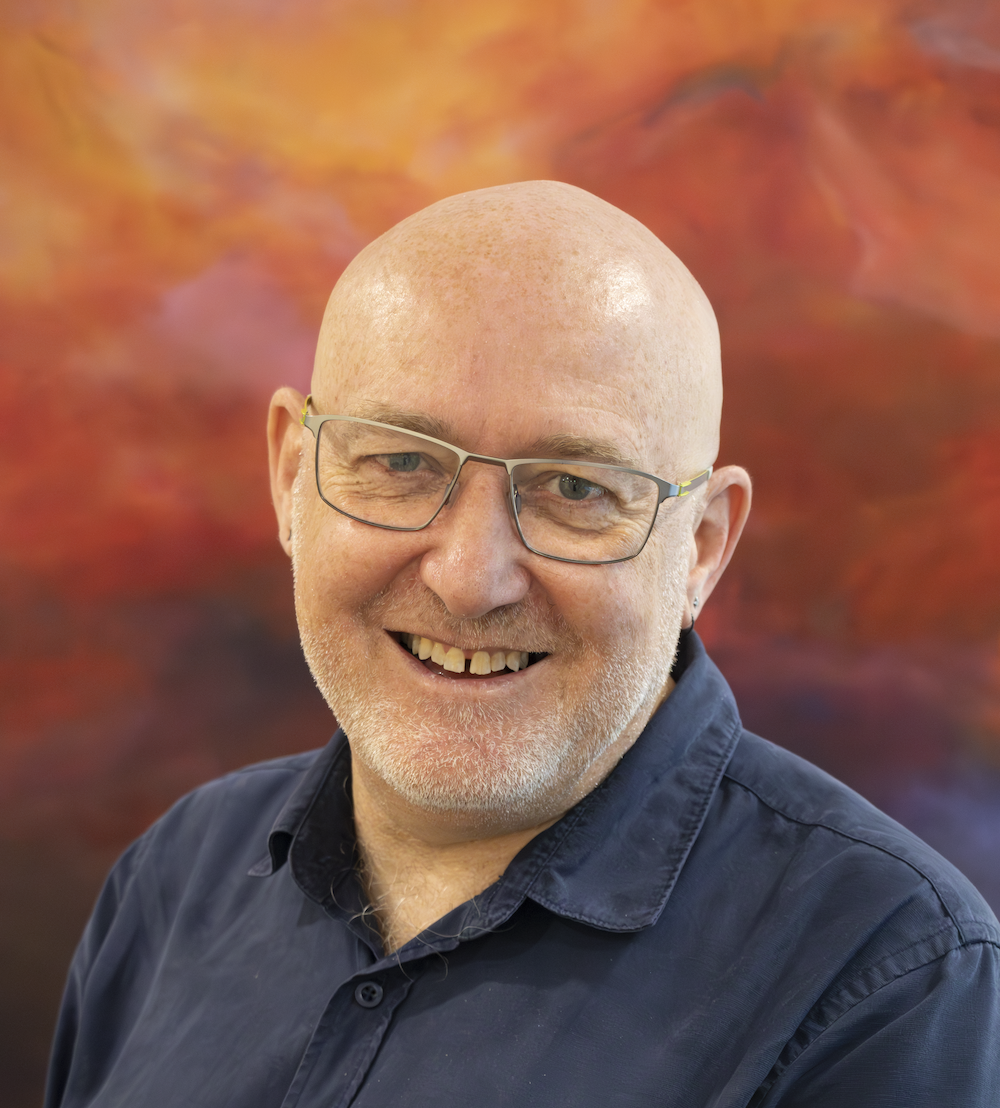Jo Putra has been a mainstay around Hunter pathology labs for 43 years, and last week she hung up the gown for the last time.
Jo is retiring from her role as a Technical Officer in the Biochemistry department at our John Hunter pathology lab.
The world of pathology has seen massive changes since Jo’s first day on the job in 1980.
“Those years included after-hours call work with tests being assayed on individual analysers and where all results were handwritten in ledgers, not like nowadays!” Jo explained.
During her career, Jo has been part of her fair share of major events that have helped shape the Hunter community.
From participating in the NBN telethon that funded the New Med building at John Hunter Hospital, to being evacuated during the Newcastle earthquake, all the way to working in the lab during the turbulent years of the COVID pandemic.
Jo quickly developed a reputation as a hard worker who was never afraid to go above and beyond.
“I can genuinely say I have put 100 percent into every day of those 43 years with a work ethic learned in those first “hard but fair” years,” Jo said.
“With pride, I can say I have helped pass that work ethic on to our three, now adult children.”
Throughout her years in the lab, Jo was an integral member of the tight-knit team at the John Hunter pathology laboratories – a bond that will continue.
“I will miss the camaraderie and banter with my colleagues but have built friendships that will last into retirement.”
Being a Newcastle Knights die-hard supporter, a frequent flyer to Bali, and having a close, loving family, Jo has her retirement plans sorted.
“I look forward to a future that involves more time with my husband, family, friends, spending quality time at our home here and in Bali, more travel, following my beloved Knights team and a life devoid of rosters!” she said.
“I also hold onto hope of a career as a grandmother relatively soon!”
Jo, thank you for all your years of dedicated service, you will be dearly missed.

